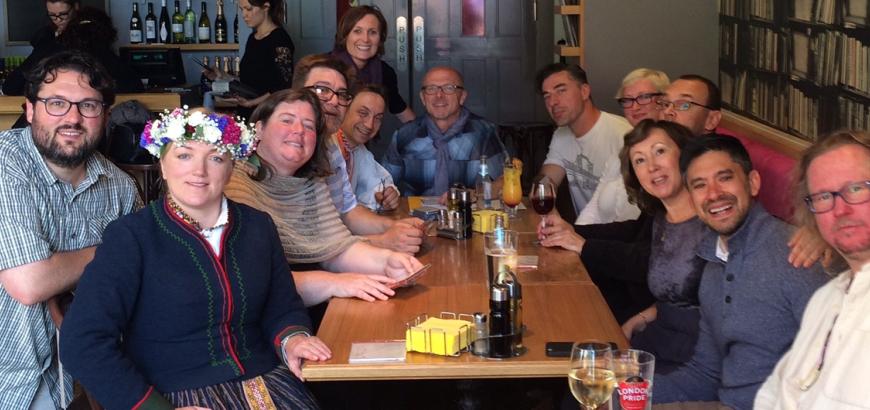The Singing Revolution of 1991 was a remarkable victory of the people of the countries of Lithuania, Latvia, and Estonia over the occupying forces of the Soviet Union. Their weapon? The human voice. Historically, the people of this region are among the most vocal of any culture in the world. From the earliest roots of their modern culture they have encoded their history and cultural story in song, and have used singing for virtually all the events of life, from menial daily tasks, to work, to celebrations. Singing has historically accompanied much of their daily lives. As social custom and history is passed on through generations through singing, vocal music is central to Baltic life.
Geoffrey Boers, Director of Choral Activities at the University of Washington, learned of this singing culture in 1999, after fellow professor Guntis Smidchens, director of the Baltic Studies program, invited the UW Chamber Singers to sing at a Baltic event. Since that initial collaboration, the two have traveled with UW choirs to the region five times, developed a Baltic Choral Library, and have hosted numerous choirs and conductors from the Baltic to Seattle. As Boers’ interest in Baltic choral music grew, so did involvement by colleagues and students in the choral conducting program. Boers’ colleague Giselle Wyers, director of the University Chorale, accompanied two choral tour groups, taking a lead role in managing tour logistics in 2010. In addition, numerous choral conducting graduate students have won grants to pursue study of Baltic choral music.
This past summer, Boers led a tour of choral conductors—including current and former UW choral conducting students—through the region, to develop a concert tour for the summer of 2016. In Vilnius, Lithuania, they explored the folk roots of the song tradition there. In Riga, Latvia, they attended a "small" song festival, with a choir of 12,000, and met with local conductors and composers. Finally, in Tallinn, the group met conductors and met with artistic leadership of the Estonian Philharmonic Chamber Choir, considered among the world's finest and most innovative choirs.
During the 2016 tour, Boers will conduct a large combined choir to sing in the Capitol cities of the three countries. "Large choirs are common to this region," says Boers. "Choral festivals, held in stadiums built for singing, will attract choirs of up to 30,000 singers, instrumentalists, and dancers, with the concerts attended by hundreds of thousands of people."
The 2016 tour, open to choral singers and conductors from throughout the world, will be the first time that Boers has taken choral singers and conductors from outside the UW community to the area.
"Learning about this peaceful culture, and the power and place of song within the culture has been a transformative experience for me, as well as many of our students,” Boers says. “In the United States singing with choirs is considered performance art; it is rare for anyone outside of choral singing to recognize its power to shape world view, value systems, amid sense of community. In the Baltic, we see entire nations that have been shaped in this way."

